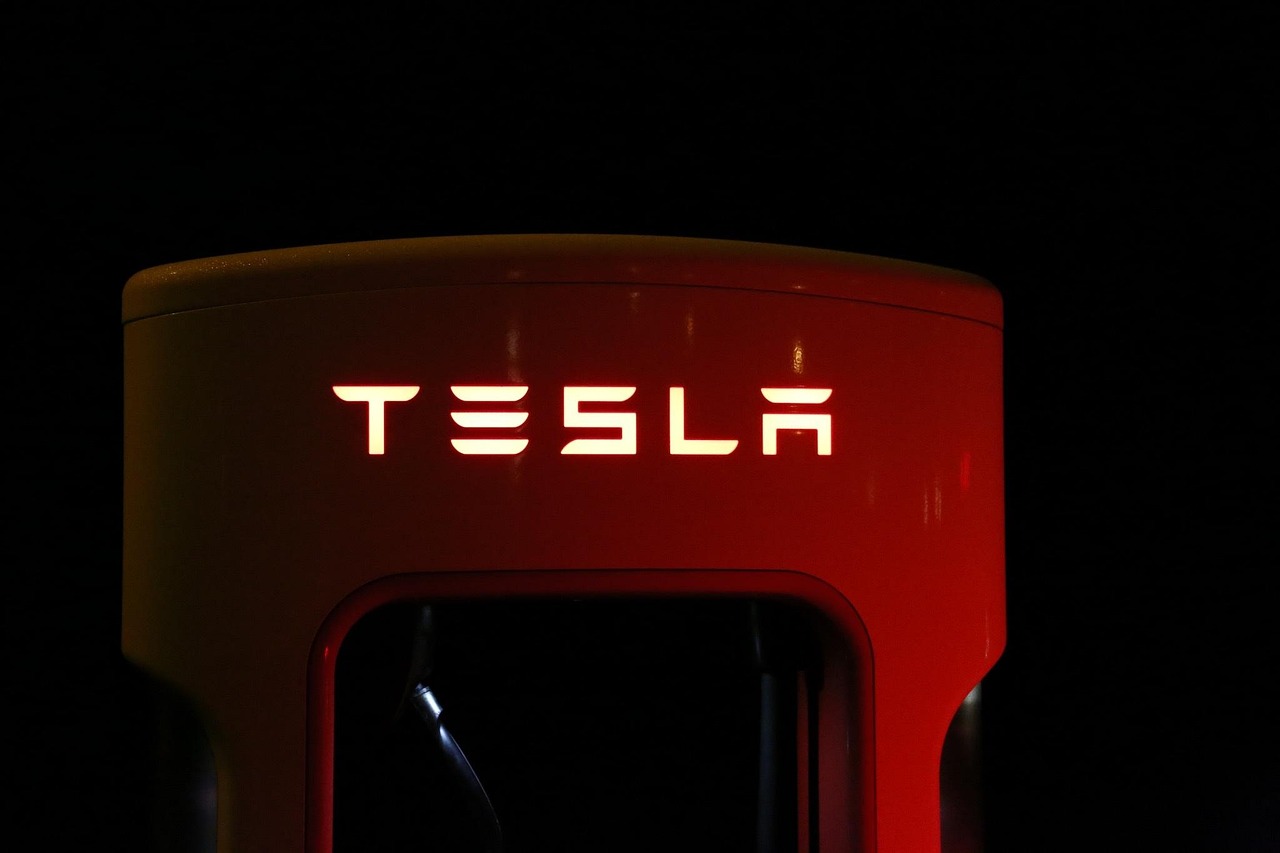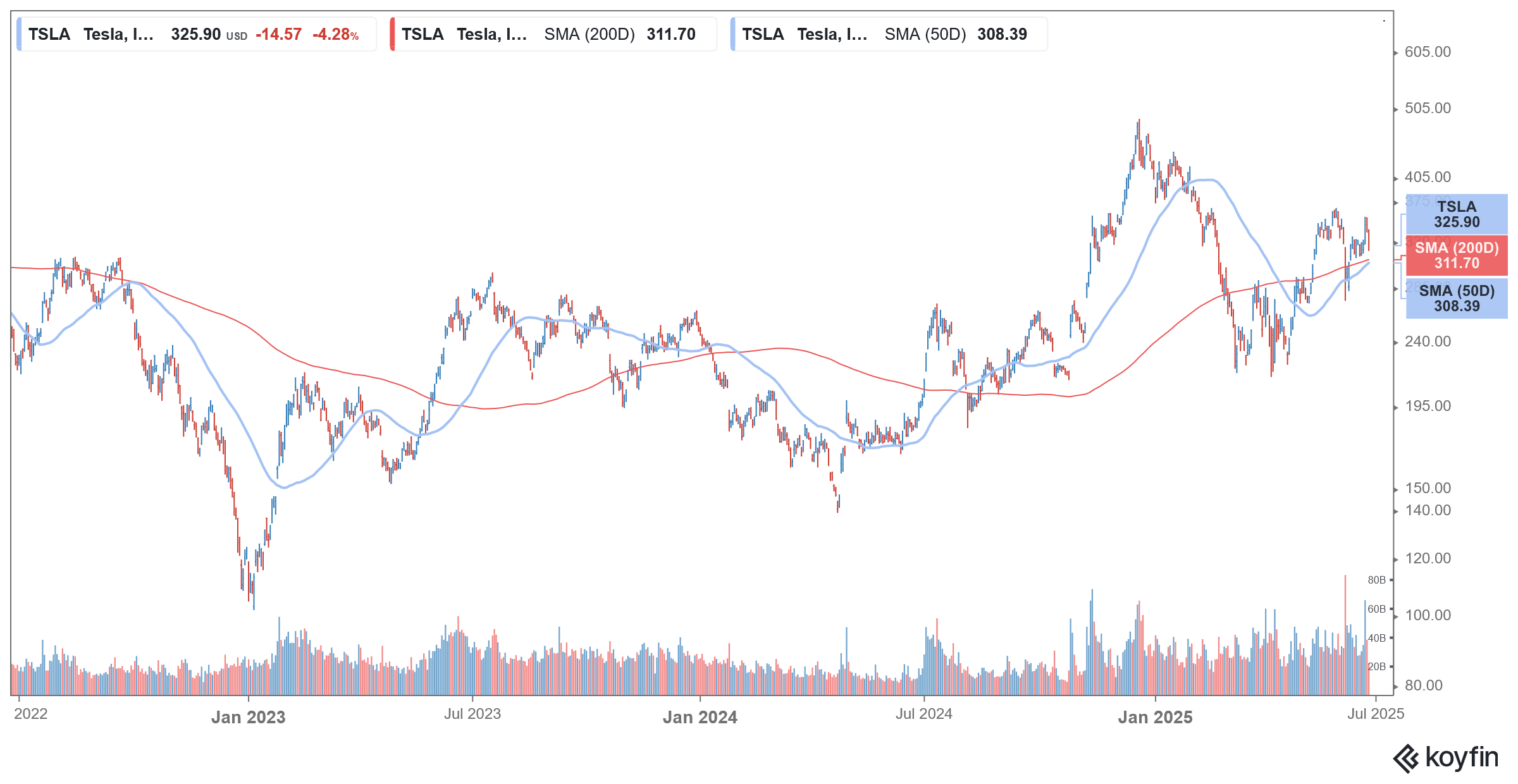
Tesla shares (NYSE: TSLA) are down sharply in early price action today after data showed that registrations for its cars in Europe fell in double digits in May. It is the fifth consecutive month when the company’s sales fell steeply in Europe, and with today’s losses, the shares have given up all the gains from Monday when they spiked following the robotaxi rollout over the weekend.
Data released by the European Automobile Manufacturers Association showed that sales of Tesla cars fell 27.9% to 13,863 in the European Union, Britain, and the European Free Trade Association. It is the fifth consecutive month when the company’s sales plunged in the continent as many buyers have shunned Tesla vehicles due to CEO Elon Musk’s political activities, in particular his support for far-right politicians pretty much across the world, including in Europe.
Tesla loses market share in Europe
Tesla’s market share in Europe fell to a mere 1.2% in May as compared to 1.8% in the corresponding month last year. Chinese companies have gained market share in Europe at Tesla’s cost and sold 65,808 units last month. The market share of Chinese companies more than doubled to 5.9%, according to data published by JATO Dynamics.
BYD has been particularly gaining market share in China and sold nearly as many cars as Tesla in May. In April, the Chinese EV giant sold more cars than Tesla in the region for the first time.
While the Elon Musk-run company has been in Europe for quite some time now and also has one of its Gigafactories in Berlin, BYD entered the region only in late 2022. Moreover, BYD cars face tariffs in the EU, while the cars built by Tesla at its Germany Gigafactory are exempt from these tariffs.
Chinese companies gain market share in Europe
“Despite the EU’s imposition of tariffs on Chinese electric vehicles, its car brands continue to post strong growth across Europe,” said Felipe Munoz, global analyst at JATO Dynamics, in a statement.
He added, “Their momentum is partly due to their decision to push alternative powertrains, such as plug-in hybrids and full hybrids, to the region.” Notably, hybrids and plug-ins don’t attract the kind of tariffs that Chinese EVs are subject to in Europe. Moreover, these cars appeal to those customers who are wary of buying a battery electric vehicle due to concerns over range anxiety, among others.
Tesla is facing a backlash in Europe
Tesla is facing a backlash in Europe, and 10 drivers in Paris filed a lawsuit against the company, alleging that the perception of its cars becoming political symbols “prevents them from fully enjoying their car.”
Patrick Klugman, one of the lawyers working on the case, told Agence France-Presse, “The situation is both unexpected and impossible for French Tesla owners.” He added, “we believe that Mr Musk owes these buyers the peaceful possession of the thing sold.”
To be sure, even Musk admitted on more than one occasion that his political activities have hurt his businesses. During the Q1 2025 earnings call in April, Musk began his commentary by talking about his stint with President Donald Trump’s Department of Government Efficiency (DOGE) and the “blowback” for that association.
Musk has since left the White House, and his relations with Trump have soured following his outburst against the President’s flagship tax and spending bill. However, it remains to be seen whether Musk’s dissociation from Trump has any impact on the Tesla brand and its reputation among those on the other side of the political divide.
Funds have been wary of investing in Tesla shares
Many institutions have also been wary of investing in Tesla and earlier this month Swedish pension fund AP7 blacklisted Tesla and sold all its shares citing labour rights valuations by the company in the US. The fund joins an increasing number of institutions that are shunning Tesla in recent months.
Several funds and institutional investors have either stopped investing in Tesla or have significantly reduced their holdings for reasons mostly due to Musk’s public behavior and political involvement. The company’s financial performance, intense competition in the electric vehicle market, and issues related to union rights have been among the other reasons why some institutions have shunned Tesla shares.
In March, Danish pension company Akademikir Pension announced it would sell its stake in Tesla amid concerns about the company’s labour rights, lax corporate governance, and Musk’s behaviour.
Later in April, Swedish insurer Folksam also divested its $160 million stake in Tesla. “Unfortunately, no improvement has been seen and a decision has therefore been made to divest the holding,” said Marcus Blomberg, Folksam’s head of asset management and sustainability.
TSLA’s sales and earnings have fallen
Last month, Pennsylvania’s Lehigh County Pension Board voted 4-2 to halt fresh purchases of Tesla shares, becoming the first known case of a public pension fund blocking investments in Elon Musk run company. The fund blamed Tesla’s performance and Musk’s political activities for its decision. Lehigh County Controller Mark Pinsley said, “With Tesla’s earnings down 71% year-over-year and auto revenues falling 20%, our $500 million pension board prioritizes fiduciary responsibility.”
Tesla’s Q1 revenues plummeted 9% YoY to $19.34 billion. The fall in revenues was not surprising as the company’s shipments had tanked 13% in the quarter. Moreover, Tesla has been lowering car prices to spur sales, which has negatively impacted its average selling prices. Overall, Tesla’s automotive revenues fell 20% in the first quarter.
While the company was profitable in the quarter, these profits came from sales of regulatory credits. If not for these credits, the Elon Musk-run company would have posted a net loss in the quarter.
Tesla will release its Q2 delivery numbers next week and analysts have progressively trimmed their estimates as data shows weak registration numbers in Europe, China, as well as Europe.
While Tesla blamed the Model Y refresh for tepid sales in Q1, even the refreshed Model Y, which is otherwise its best-selling model, has failed to spur sales, and the company had to offer discounted financing options to drive sales.


Question & Answers (0)